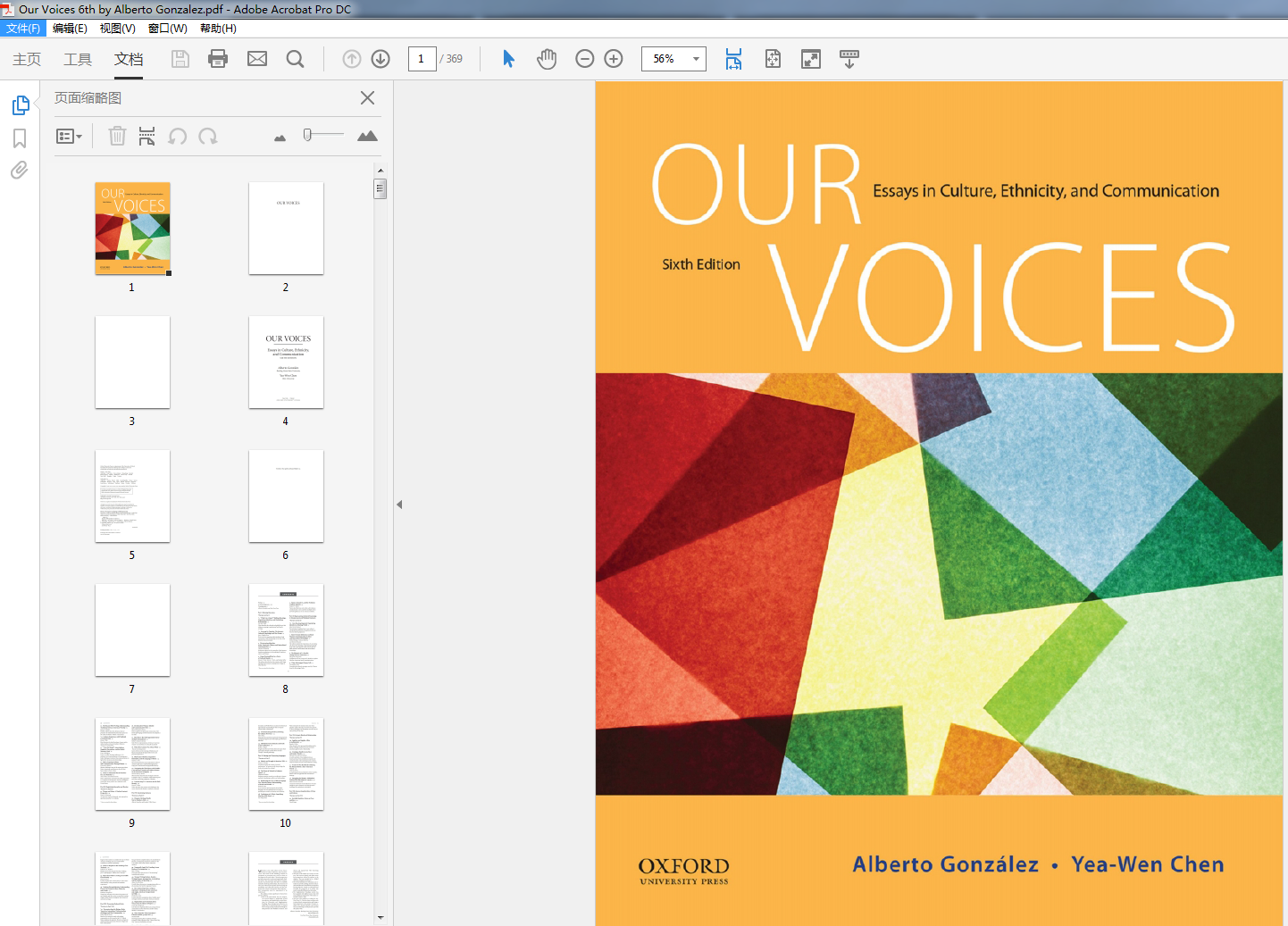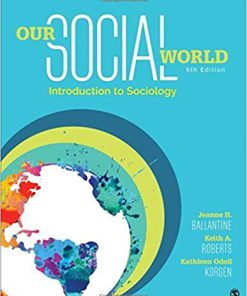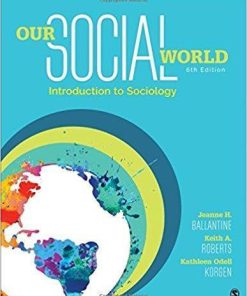(eBook PDF) Our Voices 6th by Alberto Gonzalez
$50.00 Original price was: $50.00.$35.00Current price is: $35.00.
(eBook PDF) Our Voices 6th by Alberto Gonzalez – Instant Download
(eBook PDF) Our Voices 6th by Alberto Gonzalez – Digital Ebook – Instant Delivery Download

Product details:
- ISBN-10 : 0190255234
- ISBN-13 : 978-0190255237
- Author: Alberto Gonzalez (Author), Yea-Wen Chen (Author)
Our Voices: Essays in Culture, Ethnicity, and Communication examines intercultural communication through an array of cultural and personal perspectives, with each of its contributors writing a first-person account of his or her experiences in the real world. While most readers are collections of scholarly essays that describe intercultural communication, Our Voices presents short, student-oriented readings chosen with an eye toward engaging the reader. Collectively, the readings tackle the key areas of communication-rhetoric, mass communication, and interpersonal communication-using a uniquely expansive and humanist perspective that provides a voice to otherwise marginalized members of society. Praised by students for its abundance of short, first-person narratives, Our Voices traverses topics as diverse as queer identity, racial discourse, and codes of communication in nontraditional families.
Table contents:
PART I: Naming Ourselves
Preview to Part I
CHAPTER 1: “What’s in a Name?”: Shifting Meanings, Negotiating Identities, and Globalizing Rel
Critical Moments of Disorientation
Naming a Culturally “Mixed” Child
Naming Practices and Romanizing Systems in Taiwan
Conclusion
CHAPTER 2: Growing Up Together: The Internet, Cultural Knowledge, and Thai Names, JENNY UNGBHA KORN
When Thainess Meant the Four of Us
When Thainess Meant Our Student Group
When Thainess Meant Online Strangers
When Thainess Meant Extended Family
Conclusion
CHAPTER 3: Dis/orienting Identities: Asian Americans, History, and Intercultural Communication, THOM
The Specter of the “Orient”
Where Is the Orient?
How to Become Dis/oriented
Reconsidering History
Another Country?
CHAPTER 4: Osage Naming Ritual as a Form of Cultural Identity, STEVEN B. PRATT, MERRY C. PRATT, AND
The Osage Nation
Osage Child Naming Ritual
“Now That You Have This Name What Are You Going to Do with It?”
Social Change and the Impact on Osage Identity
Mixed-Bloods and Contemporary Issues in the Child Naming Ritual
Naming Mixed-Bloods
The Problematic Nature of Relying on the Naming Ritual to Establish Cultural Competency
Conclusion
CHAPTER 5: Names, Narratives, and the Evolution of Ethnic Identity, DOLORES V. TANNO
Unfolding Ethnic Identity
The Worth of Multiple Names
PART II: Representing Cultural Knowledge in Interpersonal and Mediated Contexts
Preview to Part II
CHAPTER 6: I Am Hearing Impaired: Negotiating Identity in a Hearing World, JOHN PARRISH-SPROWL
Becoming Hearing Impaired
Managing Relationships through Communication Complex
Conclusion
CHAPTER 7: Sister-Friends: Reflections on Black Women’s Communication in Intra- and Intercultural
Safe versus Hostile Spaces for Speaking
Ingroup Language
When Black Women Talk with White Women
Social Support
Conclusion
CHAPTER 8: The Rhetoric of La Familia among Mexican Americans, MARGARITA GANGOTENA
La Familia and Traditional Social Science Research
Contribution of Communication to Understanding la Familia
Conclusion
CHAPTER 9: When Mississippi Chinese Talk, GWENDOLYN GONG
Deference and Accommodation
Deference and Topic Shifting
Lotuses in the Land of the Magnolias
CHAPTER 10: The Reason Why We Sing: Understanding Traditional African American Worship, JANICE D. HA
African American Worship
Role Behaviors
The African American Preaching Style
Summary
CHAPTER 11: Latina/o Experiences with Mediated Communication, DIANA I. RÍOS
Active Audiences
Dual Functions
Media Use and Acculturation
Media Use for Self-Preservation
Concluding Remarks
CHAPTER 12: “I Am Not Jamal”: Asian Indians, Simplistic Perceptions, PRAVIN RODRIGUES
The Simplification of India and Asian Indians in the United States
Asian Indians and the Myth of the Model Minority
Asian Indians and India: Complex People in a Complex Country
(South) Asian Indian Complexity as an End to the Myth of the Model Minority
Conclusion
CHAPTER 13: Native American Culture and Communication Through Humor, CHARMAINE SHUTIVA
Native American Humor and Group Cohesiveness
Native American Perception of Time
Native American Group Orientation
Native American Humor
Conclusion
People also search:
our 6th sense
our voices together
our voices will be heard
|
voices of freedom 6th edition volume 1
|
You may also like…
Computers & Technology
(eBook PDF) Digital Image Processing 4th Edition by Rafael C. Gonzalez











